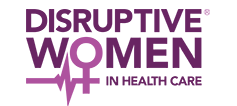Grey’s Anatomy. ER. Scrubs. General Hospital. St. Elsewhere. Chicago Hope. Just a few of the many television shows revolving around hospitals that have captured America’s imagination. While some of the portrayals of these medical institutions were accurate, many were fantastical representations of healthcare. Real-life hospitals are a fluctuating atmosphere of good and bad patient care, which often varies based on how well the staff works together.
Grey’s Anatomy. ER. Scrubs. General Hospital. St. Elsewhere. Chicago Hope. Just a few of the many television shows revolving around hospitals that have captured America’s imagination. While some of the portrayals of these medical institutions were accurate, many were fantastical representations of healthcare. Real-life hospitals are a fluctuating atmosphere of good and bad patient care, which often varies based on how well the staff works together.
No hospital would say that patient safety wasn’t important, yet statistics suggest that:
- As many as 440,000 people die every year from hospital errors, injuries, accidents, and infections
- Annually, 1 out of every 25 patients develops a preventable infection while in the hospital
- A Medicare patient has a 1 in 4 chance of experiencing injury, harm or death when admitted to a hospital
- More than 1000 people die each day because of a preventable hospital error.
Negligence in hospitals can come in many forms. Common examples include:
- Anesthesia errors
- Birth injuries
- Delayed diagnosis
- Failure to consult a specialist
- Failure to diagnose
- Failure to order correct tests
- Falls
- Improper use of medical equipment
- Improperly trained staff
- Inadequate staffing
- Leaving foreign objects behind after surgery
- Medication mistakes (wrong dose, wrong drug, wrong route of administration, etc.)
- Misdiagnosis
- Misread test results
- Using defective equipment
- Wrong site surgeries
According to www.medicare.gov, there are currently 39 hospitals within 25 miles of the center of Philadelphia. That’s a lot of choices for patients to consider. Some have been in the news recently for safety concerns. For example, an investigation by the Philadelphia Inquirer revealed that one in four babies less than a month old died after arduous, highly risky heart operations performed between 2009 and 2014 at St. Christopher’s Hospital for Children. High rates of infections and other patient injuries resulted in financial penalties last year for the Hospital of the University of Pennsylvania, Pennsylvania Hospital, and Thomas Jefferson University Hospital. Patient surveys from 2014 gave several Philly hospitals poor in-patient care scores including Albert Einstein Medical Center, Aria Health, Chestnut Hill Hospital, Nazareth Hospital, and Temple University Hospital.
Headed to the hospital for some kind of treatment? Negligence does not have to be an inevitable part of healthcare. One way to protect yourself is to do research ahead of time. The Hospital Safety Score is a public service available at no cost that combines 28 national performance measures into one score representing a hospital’s overall performance in keeping patients safe from preventable harm and medical errors. One hospital might do very well at one type of procedure, but very poorly at another. Healthcare is a business and as such, many consumers are now turning to places like Yelp to talk about their experiences. Reviews cover everything from quality of care to availability of parking.
It’s important to not be intimated by doctors or nurses when it comes to asking questions about your health. Expressing your concerns in a respectful manner can go a long way toward a successful hospital experience with minimal complications. If you don’t feel up to the task, ask a trusted family member or friend to be with you whenever possible as an advocate for your health. Educate yourself about your conditions so you will know when something about your care doesn’t seem right. And remember that you are a member of your health care team. Do your part by honestly disclosing your medical history, listing all your medications, and following all discharge instructions.







